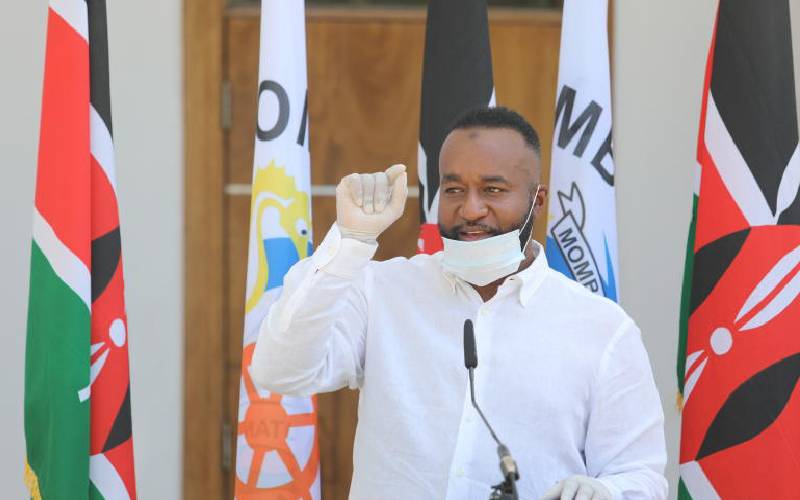×
The Standard e-Paper
Kenya’s Boldest Voice

Many Kenyans have been surprised by the sight of mission-driven governors at work in the fight against Covid-19. In Mombasa, Governor Joho (pictured) has stepped up to avoid a catastrophe in the city. Kitui’s Charity Ngilu moved fast to repurpose the county’s textiles capacity to make essential items like masks. Even the embattled Kirinyaga Governor Anne Waiguru has been out ensuring that markets can still operate in her county while adhering to the official guidelines about social distancing.